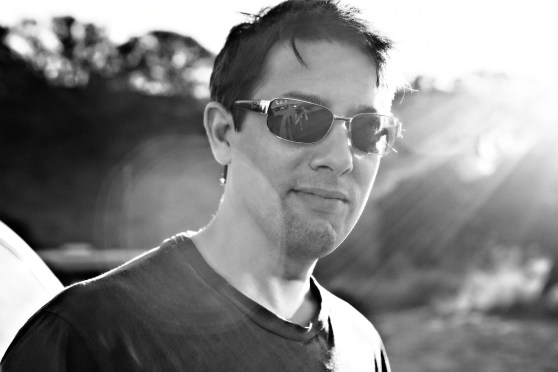Composer interview: Cris Velaso
If you’ve played a video game in the last few years, you’ve likely heard Cris Velasco’s music. That eerie bug-like percussion in Starcraft 2? That was him. God of War III? Velasco again. He’s an award-winning American composer with a deep appreciation for the classical masters and a drive to create varied and experimental scores for games.
GamesBeat: What are a few of your major musical influences?
Cris Velasco: I love the music of the composers Shostakovich, Prokofiev, Tchaikovsky, Dvorak, Elgar, Beethoven, and Debussy, to name a few. I’ve always found that it’s important as an orchestral composer to really know the ins and outs of the great composers. There’s a wealth of knowledge to draw upon from them.
GamesBeat: Many of the scores you compose have a driven, military flair to them. Does this reflect your personal style or is it a thematic choice for many games?
Velasco: I’ve done a few military-type scores like Haze and G.I. Joe before this, but I’m not really sure that it reflects a large portion of my work. I’ve also done a lot of sci-fi, horror, and “epic” orchestral music. But in the case of Company of Heroes 2, it was definitely a conscious choice to have a driving, militaristic score. A WWII game that pits the Russians against the Nazis really begs for something like that. The whole score has a hint of melancholy to it as well, though. It’s not meant to cheer for your army; it’s another voice or storyteller that helps drive the story.
GamesBeat: Do you utilize any unconventional or nonmusical sounds while composing? If so, what’s the most unusual item you’ve turned into an instrument?
Velasco: For Company of Heroes 2, I did create some new sounds that blend in with the orchestra, mostly on the ambient tracks. Nothing too unusual though. The most unconventional thing I’ve done recently is take the sounds of an insect — the clicking legs and mandibles — and turning them into a percussion instrument. This was specifically for the Zerg on StarCraft 2.
GamesBeat: How do you decide to take on a project?
Velasco: I’m always looking for something different. No one likes to be pigeonholed, so I try to do a wide variety of projects. Being a well-rounded composer is not only more fun for me, but it also benefits my clients. In the end, though, I really like to score games that I would also like to play!
GamesBeat: Many composers I’ve spoken with made the shift to game composing because they feel a greater sense of creative freedom. Is that true in your experience?
Velasco: I actually started out in games. I made a conscious decision from the beginning of my career that I wanted to work in games. I’ve also done some film and television, and I do have to say that, yes, games do offer more creative freedom. That’s probably the case for at least two reasons. One, games are obviously nonlinear. Game composers have been figuring out creative ways to make music sound nonrepetitive and dynamic for a long time. These are techniques that force us to think outside the box and would never be incorporated into a linear medium like film. Two, the schedule for composing on a game is usually longer than what you’d find in movies and especially in TV. This allows me to take the time to experiment more, to really dig in and take the time to develop a score that becomes the voice of the game.
GamesBeat: What information about a game is most important to you when developing a soundtrack’s tone?
Velasco: I really get inspired by the visuals. Whenever I start a new project, I like to get as much of the concept art and screenshots as possible. If there’s a working build of the game, that’s even better. If I’m scoring a level that has hundreds of infantrymen and half a dozen tanks all fighting next to a frozen lake, I’ll get a lot more inspired if I can actually see it on a screen in front of me.
GamesBeat: Do you have any upcoming projects you can talk about?
Velasco: I’ve just finished up a cool fantasy-based MMO. The score is all orchestral and very thematic/melodic. I’m really happy with it. I just can’t tell you which game it is yet. I’m also currently working on another new project with [composer] Sascha Dikiciyan again this time. It’s very different from what you’ve heard from us before. Expect some film announcements from me this year, too!
VentureBeat's mission is to be a digital town square for technical decision-makers to gain knowledge about transformative enterprise technology and transact. Learn More


